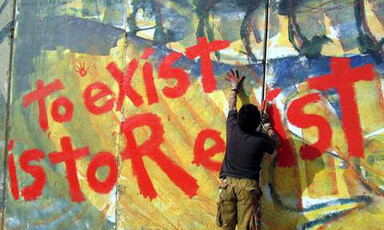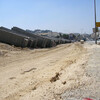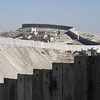
One year after ICJ ruling, Israel OKs Wall in Jerusalem
10 July 2005
One year after the ruling of the International Court of Justice (ICJ), in which it made clear that the construction of the Wall and the settlements were illegal, the Israeli cabinet called for “the immediate completion of the security fence [sic] in the Jerusalem area”. With this decision, Israel, once again, defies international law and the advisory of opinion of the ICJ, backed by the General Assembly of the United Nations, which ruled that Israel should not only immediately stop with its construction, but also begin dismantling them and to pay reparations to those who had lost their property as the result of the Wall’s construction. Read more about One year after ICJ ruling, Israel OKs Wall in Jerusalem








